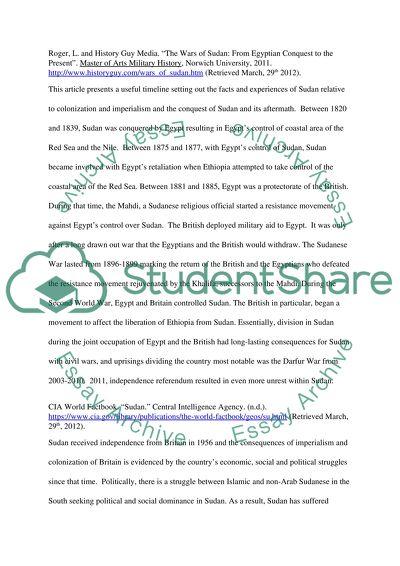Cite this document
(“New Imperialism in Africa (Sudan and Egypt) Essay”, n.d.)
Retrieved from https://studentshare.org/history/1445427-semester-project-colonialism-imperialism-case
Retrieved from https://studentshare.org/history/1445427-semester-project-colonialism-imperialism-case
(New Imperialism in Africa (Sudan and Egypt) Essay)
https://studentshare.org/history/1445427-semester-project-colonialism-imperialism-case.
https://studentshare.org/history/1445427-semester-project-colonialism-imperialism-case.
“New Imperialism in Africa (Sudan and Egypt) Essay”, n.d. https://studentshare.org/history/1445427-semester-project-colonialism-imperialism-case.


